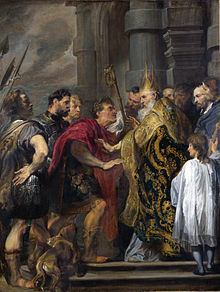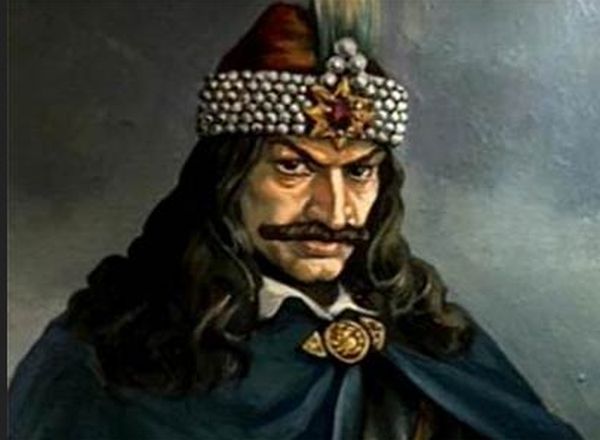
312 Constantine has a vision
The chaos in Roman politics that weakened the empire in the 3rd century was ended by reforms put in place by Diocletian (r. 284-305), particularly his institution of the Tetrarchy. Henceforth there would be four emperors: a senior Augustus in the East and in the West, each with a junior Caesar. There would be four capitals, each close to strategic border areas to allow rapid response to barbarian incursion. The plan was that when the senior rulers stepped down they would be replaced by their Caesars and the usual unseemly battles for power would be avoided. Alas, the scheme did not work in practice. After the retirement of Diocletian in 305, fighting broke out in the western part of the empire between rival generals who each thought they should be next in line. In the fall of 312, Constantine brought his army into Italy to contest the throne with Maxentius; they would meet outside Rome at the Battle of the Milvian Bridge.
According to Lactantius, on the evening of October 27 Constantine saw a vision:
Constantine was directed in a dream to cause the heavenly sign to be delineated on the shields of his soldiers, and so to proceed to battle. He did as he had been commanded, and he marked on their shields the letter Χ, with a perpendicular line drawn through it and turned round thus at the top, being the cipher of CHRIST. Having this sign (ΧР ), his troops stood to arms. The enemies advanced, but without their emperor, and they crossed the bridge. The armies met, and fought with the utmost exertions of valour, and firmly maintained their ground. In the meantime a sedition arose at Rome, and Maxentius was reviled as one who had abandoned all concern for the safety of the commonweal; and suddenly, while he exhibited the Circensian games on the anniversary of his reign, the people cried with one voice, “Constantine cannot be overcome!”
Dismayed at this, Maxentius burst from the assembly, and having called some senators together, ordered the Sibylline books to be searched. In them it was found that:— “On the same day the enemy of the Romans should perish.”
Led by this response to the hopes of victory, he went to the field. The bridge in his rear was broken down. At sight of that the battle grew hotter. The hand of the Lord prevailed, and the forces of Maxentius were routed. He fled towards the broken bridge; but the multitude pressing on him, he was driven headlong into the Tiber. This destructive war being ended, Constantine was acknowledged as emperor, with great rejoicings, by the senate and people of Rome.
Eusebius has another, more detailed account of the vision, which in his version seems to have taken place somewhat earlier. There is no doubt, however, that the triumph of Constantine led to the legal recognition of Christianity and its eventual conversion of the Roman Empire.






